Spotlight On a Network Aiming to Make Everyone a Food Changemaker
Ali Ghiorse founded The Foodshed Network to encourage her neighbors to build a better food system.
Spotlight On a Network Aiming to Make Everyone a Food Changemaker
Ali Ghiorse founded The Foodshed Network to encourage her neighbors to build a better food system.
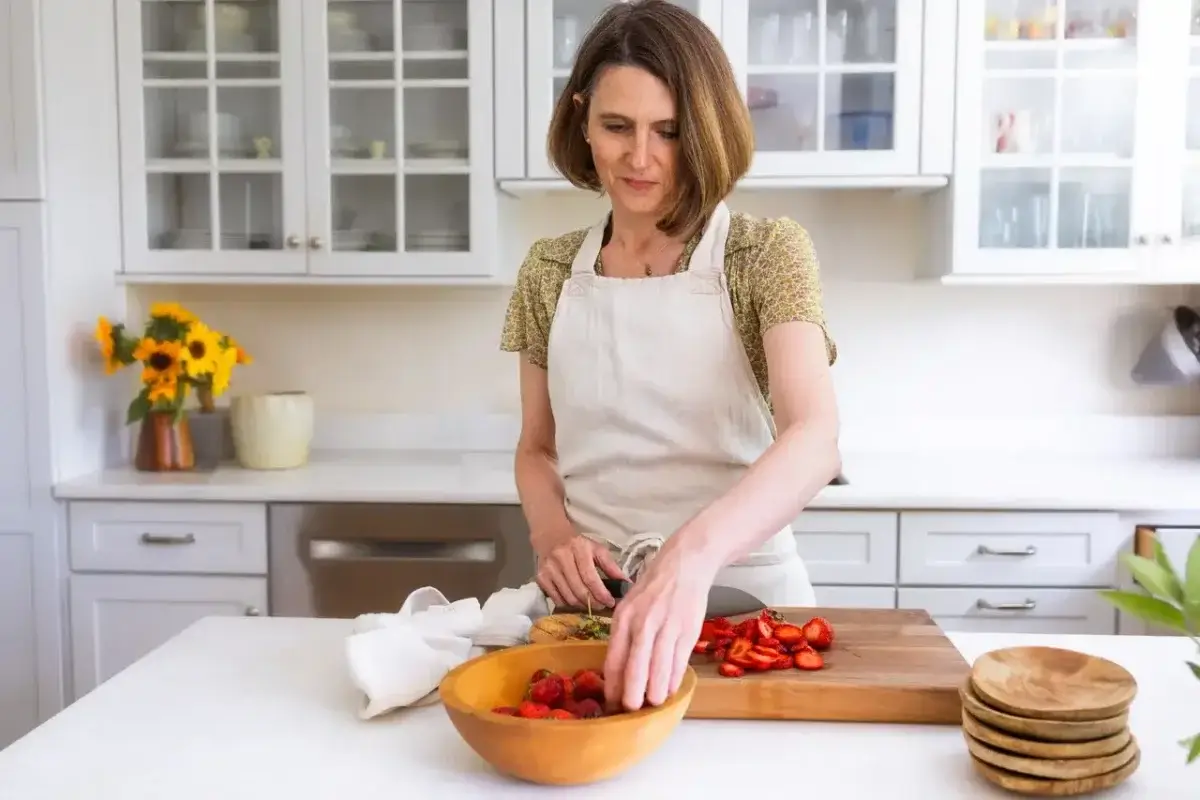
Ali prepping Riverbank Farm strawberries. Photography by Maggie Menendez.
Ali Ghiorse wants to transform our food system. A formidable goal, to be sure, but the former Bay Area chef is inspired by the years she spent immersed in Northern California’s food culture, where locally and sustainably produced food and drink is standard.
Ghiorse had stopped cooking professionally by the time she had moved back to her hometown of Greenwich in 2014; years of cooking at scale had been physically demanding and stressful, and she was ready to expand her knowledge and skills. But she felt she had lost her platform to connect with the food system in an impactful way.
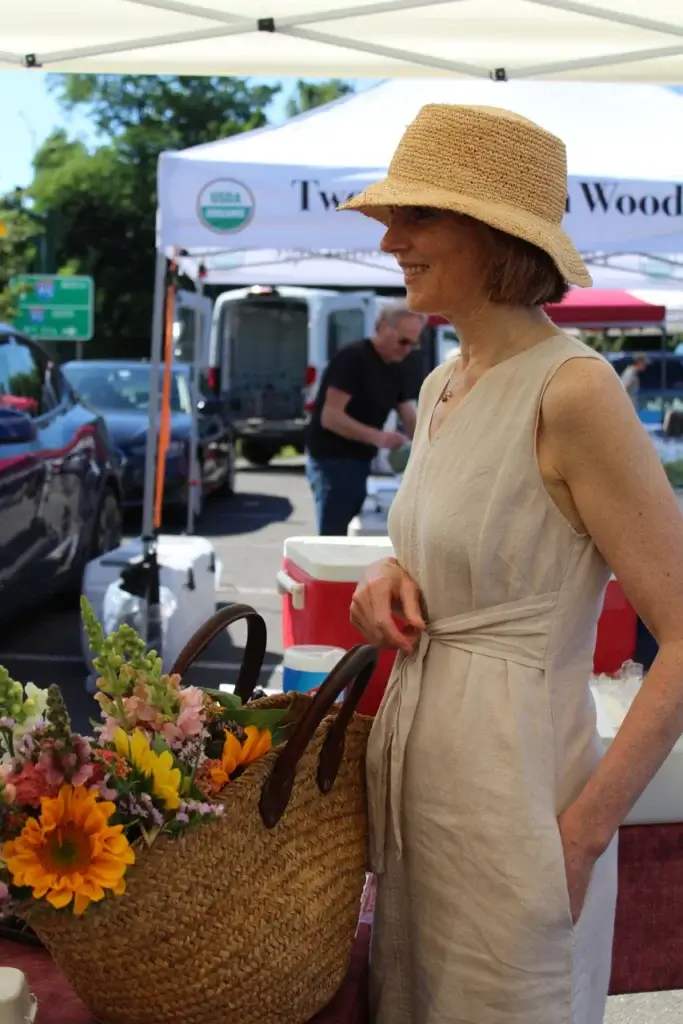
She began learning about the area’s food system and volunteering with local endeavors like the town’s sustainability committee. The committee helps guide Greenwich in advancing sustainable policies and practices that impact its natural environment, economy, and community. As chair of the committee’s food systems sector, she noticed “a gap,” she says, “in general awareness of the deeply ingrained, harmful impacts of our industrial food system.”
TAKE ACTION
Does your town have a sustainbility committee? Check this map of local and regional government committees.
So, in 2020, she founded The Foodshed Network (TFN), an educational and convening platform to encourage residents in her hometown of Greenwich, CT, and surrounding Fairfield County to become food system changemakers.
“Our food system is so complicated,” says Ghiorse. “It’s very important to know and understand the impacts of our industrial system and then to understand the huge amounts of creativity, connectivity, and community that happens around food.”
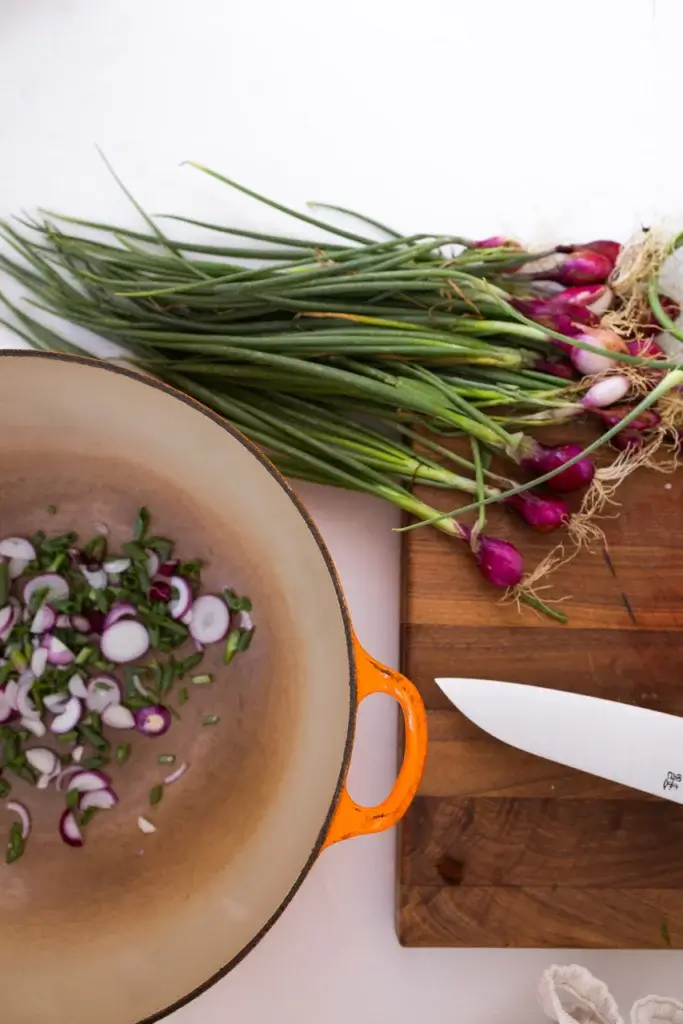
Living in the activist hotbed of San Francisco’s Mission District helped her realize the connection between systemic racism and food access. “It’s fraught with deeply rooted practices of exploitation,” says Ghiorse, “beginning with the enslavement of Africans, the genocide of Indigenous peoples, and extraction of soil watersheds, and natural and social ecosystems.
“I learned about the importance of bridge building, network weaving, cross pollinating between initiatives, and convening people around food, and,” she emphasizes, “using the power of gathering as a lever for social change and healing.”
LEARN MORE
Find out how to be a food policy advocate in your community.
To address all of these distinct yet intersecting issues, TFN is made up of several sub-organizations, including the Greenwich Food Alliance (GFA), The Foodshed Forum, and a resource library. The GFA is a community of practice, assembling business leaders and government officials in an informal group bound by shared interests and expertise. Members network, share ideas, and learn about issues and advocate for policy surrounding food, such as making SNAP benefits available at nearby farmers markets. The Foodshed Forum is the educational arm, partnering with organizations to host events such as a current three-part lecture series entitled “Heritage Foodways: Seed, Hearth & Taste” at local libraries.
The resource library, available on the website, offers a wealth of information including Thirty Ways to be a Food System Changemaker, concrete suggestions people can take to be changemakers. There’s also a monthly newsletter.
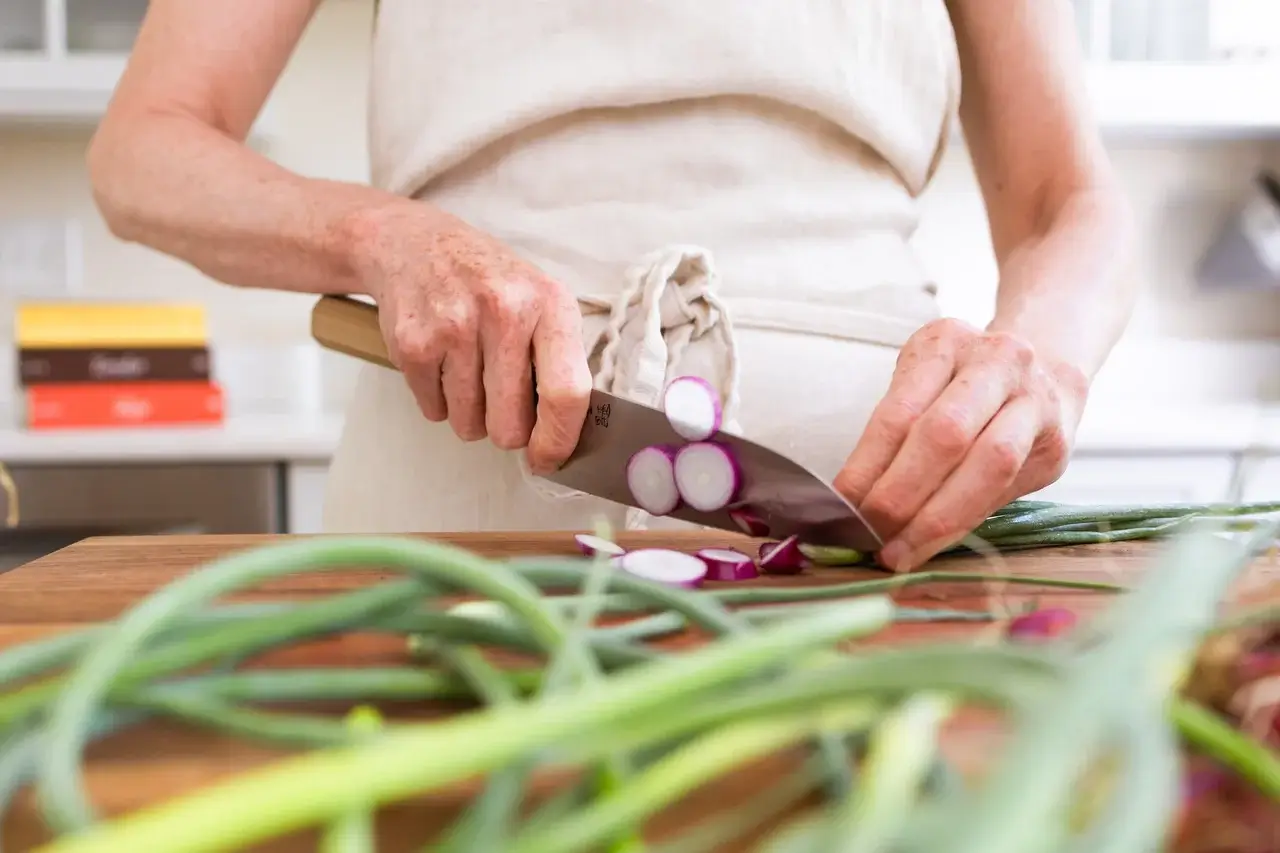
Ghiorse runs TFN full-time; it’s self-funded on a shoestring budget, but she is working towards non-profit status and finding a fiscal sponsor so she can begin fundraising.
Myra Klockenbrick, land and water Sector chair of the Greenwich Sustainability Committee and co-director of Greenwich Pollinator Pathway, credits Ghiorse with bringing up a conversation that is not natural to Greenwich. Although Greenwich is particularly affluent, the town has initiatives such as community gardens and a food pantry, as 29 percent of the community experiences financial hardship.
“She’s really deepened our awareness of the diversity in our population,” says Klockenbrick. “She has this knack and grace of not being on her high horse, but educating us deeply about our food system, both good and bad in ways that aren’t scolding but always uplifting.”
“Ali’s brought this food system conversation to Greenwich,” says Sarah Coccaro, the Town of Greenwich’s assistant director of environmental affairs. “There was conversation around food systems,” she adds, “but there wasn’t any framing or awareness of the food system with a sort of equitable racial justice lens on it.”
TAKE ACTION
Would you like to “Grow a Row” for your community? Find out how to start your own campaign here.
Coccaro says food systems topics are being integrated into conversations within the town’s Conservation committee, and that she sees the context that TFN offers helping residents understand the industrial food system’s impact. She mentions a new Grow A Row effort in which community members grow an extra row of food in their gardens to donate. “People are starting to connect dots around food systems and how it needs to change and what they can do on a local level or regional level,” she says, “and I’m proud to see that change happening.”
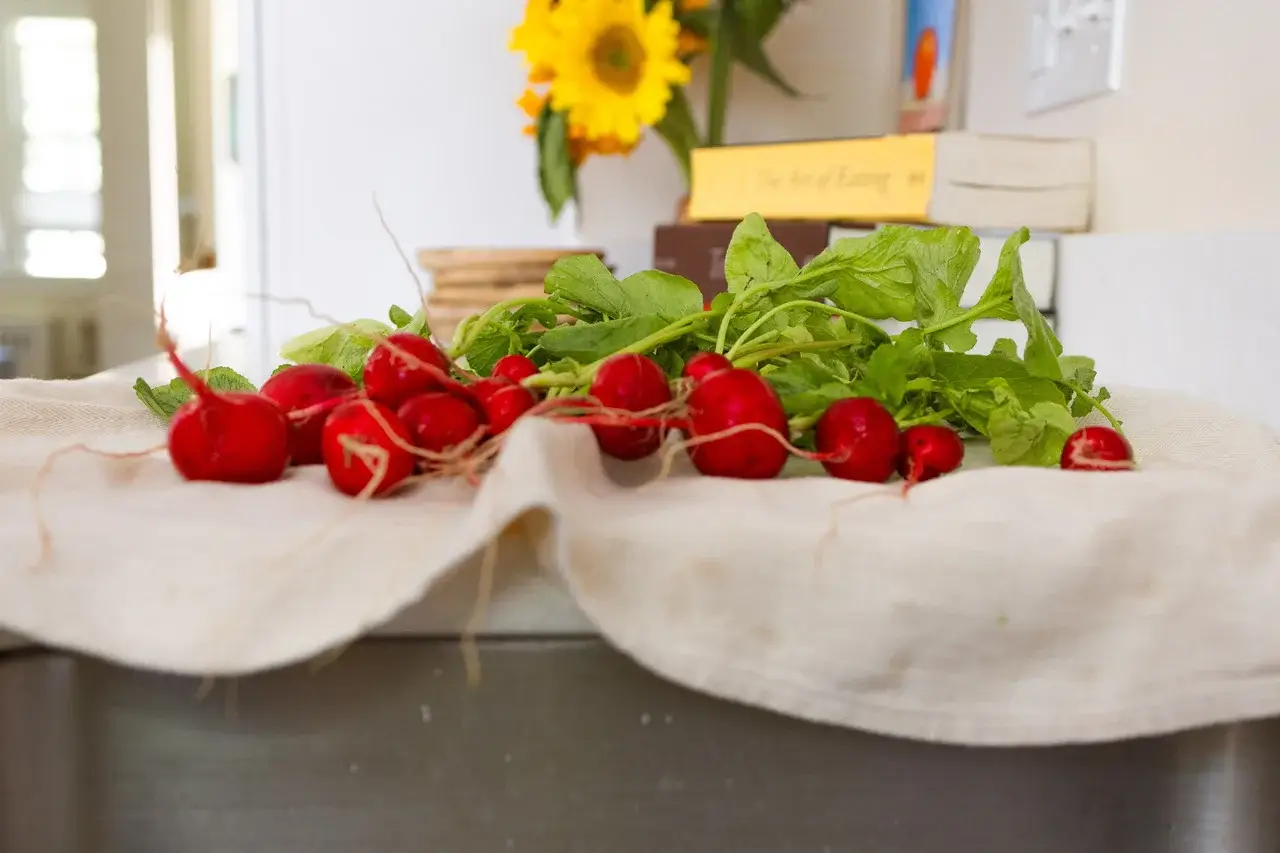
Ghiorse aspires to create a culture shift where food, land, and seed sovereignty are the norm. That’s “the North Star for me, where people and community reclaim our collective commons,” she sas. “That’s fertile soil, clean waterways, and nutrient-rich woodlands that are accessible and available to everyone as a human right. That’s foundational.”
Follow us
This work is licensed under a Creative Commons Attribution-NoDerivatives 4.0 International License.
Want to republish a Modern Farmer story?
We are happy for Modern Farmer stories to be shared, and encourage you to republish our articles for your audience. When doing so, we ask that you follow these guidelines:
Please credit us and our writers
For the author byline, please use “Author Name, Modern Farmer.” At the top of our stories, if on the web, please include this text and link: “This story was originally published by Modern Farmer.”
Please make sure to include a link back to either our home page or the article URL.
At the bottom of the story, please include the following text:
“Modern Farmer is a nonprofit initiative dedicated to raising awareness and catalyzing action at the intersection of food, agriculture, and society. Read more at <link>Modern Farmer</link>.”
Use our widget
We’d like to be able to track our stories, so we ask that if you republish our content, you do so using our widget (located on the left hand side of the article). The HTML code has a built-in tracker that tells us the data and domain where the story was published, as well as view counts.
Check the image requirements
It’s your responsibility to confirm you're licensed to republish images in our articles. Some images, such as those from commercial providers, don't allow their images to be republished without permission or payment. Copyright terms are generally listed in the image caption and attribution. You are welcome to omit our images or substitute with your own. Charts and interactive graphics follow the same rules.
Don’t change too much. Or, ask us first.
Articles must be republished in their entirety. It’s okay to change references to time (“today” to “yesterday”) or location (“Iowa City, IA” to “here”). But please keep everything else the same.
If you feel strongly that a more material edit needs to be made, get in touch with us at [email protected]. We’re happy to discuss it with the original author, but we must have prior approval for changes before publication.
Special cases
Extracts. You may run the first few lines or paragraphs of the article and then say: “Read the full article at Modern Farmer” with a link back to the original article.
Quotes. You may quote authors provided you include a link back to the article URL.
Translations. These require writer approval. To inquire about translation of a Modern Farmer article, contact us at [email protected]
Signed consent / copyright release forms. These are not required, provided you are following these guidelines.
Print. Articles can be republished in print under these same rules, with the exception that you do not need to include the links.
Tag us
When sharing the story on social media, please tag us using the following: - Twitter (@ModFarm) - Facebook (@ModernFarmerMedia) - Instagram (@modfarm)
Use our content respectfully
Modern Farmer is a nonprofit and as such we share our content for free and in good faith in order to reach new audiences. Respectfully,
No selling ads against our stories. It’s okay to put our stories on pages with ads.
Don’t republish our material wholesale, or automatically; you need to select stories to be republished individually.
You have no rights to sell, license, syndicate, or otherwise represent yourself as the authorized owner of our material to any third parties. This means that you cannot actively publish or submit our work for syndication to third party platforms or apps like Apple News or Google News. We understand that publishers cannot fully control when certain third parties automatically summarize or crawl content from publishers’ own sites.
Keep in touch
We want to hear from you if you love Modern Farmer content, have a collaboration idea, or anything else to share. As a nonprofit outlet, we work in service of our community and are always open to comments, feedback, and ideas. Contact us at [email protected].by Liz Susman Karp, Modern Farmer
August 29, 2024
Modern Farmer Weekly
Solutions Hub
Innovations, ideas and inspiration. Actionable solutions for a resilient food system.
ExploreExplore other topics
Share With Us
We want to hear from Modern Farmer readers who have thoughtful commentary, actionable solutions, or helpful ideas to share.
SubmitNecessary cookies are absolutely essential for the website to function properly. This category only includes cookies that ensures basic functionalities and security features of the website. These cookies do not store any personal information.
Any cookies that may not be particularly necessary for the website to function and are used specifically to collect user personal data via analytics, ads, other embedded contents are termed as non-necessary cookies.